Best Cardiologists in gurgaon (30 doctors)
Book appointment for a trusted Cardiologists in Gurgaon. Check doctor fees, available slots & locations. Apollo 24|7 features some of the top Cardiologists in Gurgaon who have experience in treating conditions such as Chest pain, Heart Failure, Cholesterol and more. You can book online consultations & physical doctor appointments via Apollo 24|7. Compare Cardiologists fees, experience and more, find a specialist doctor near you. Apollo hospitals has a renowned Cardiology department in Gurgaon.

Dr. K K Saxena
Cardiologist
33 Years • MBBS, MD, DM
26 KM • New Delhi
Apollo Hospitals Indraprastha, New Delhi

Prof. Dr. Vivek Gupta
Cardiologist
25 Years • MD, DM, FESC, FEAPCI, FAPSIC,FCSI, FICC, FIC France, FIEIC, FSCAI
26 KM • New Delhi
Apollo Hospitals Indraprastha, New Delhi
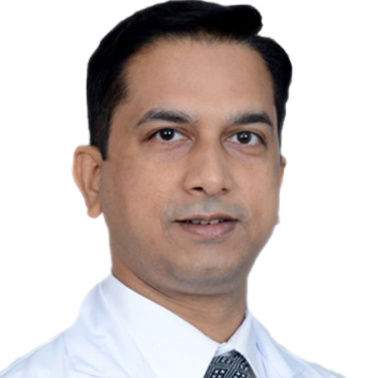
Dr. Vivek Kumar
Cardiologist
13 Years • MBBS, MD (General Medicine), DM (Cardiology)
26 KM • New Delhi
Apollo Hospitals Indraprastha, New Delhi
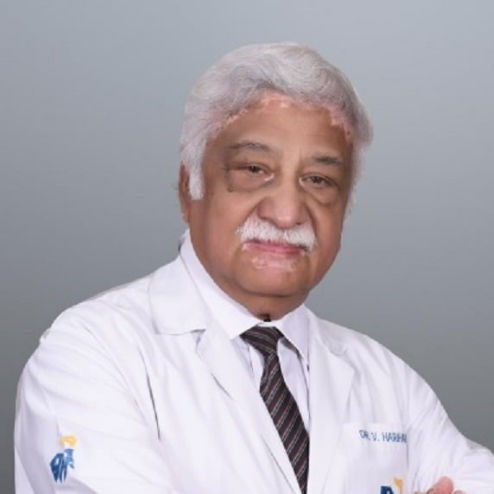
Dr. Col V Hariharan
Cardiologist
34 Years • MBBS, MD(Med.), DM (Cardio), FICA FISE FICC
26 KM • New Delhi
Apollo Hospitals Indraprastha, New Delhi
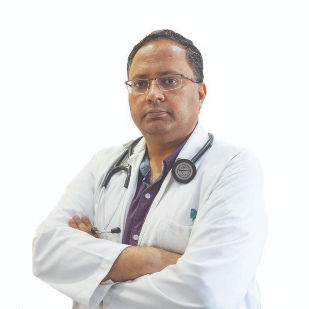
Dr. Amit Mittal
Cardiologist
19 Years • MBBS, MD, DM (Cardio)
26 KM • New Delhi
Apollo Hospitals Indraprastha, New Delhi
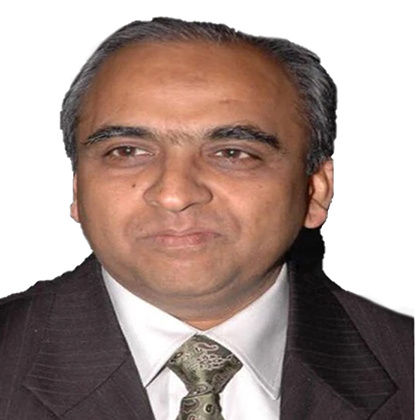
Dr. Sunil Modi
Cardiologist
38 Years • MBBS,MD (Med.),DM (Cardio)
26 KM • New Delhi
Apollo Hospitals Indraprastha, New Delhi
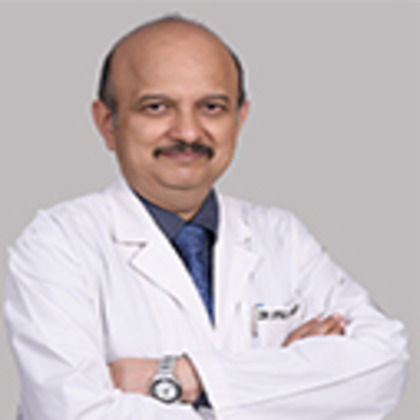
Dr. Vipul Narain Roy
Cardiologist
30 Years • MBBS, MD, MRCP
26 KM • New Delhi
Apollo Hospitals Indraprastha, New Delhi
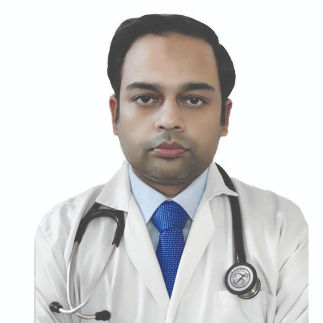
Dr. Arif Wahab
Cardiologist
8 Years • MD (Med.), DM (Cardio)
26 KM • New Delhi
Apollo Hospitals Indraprastha, New Delhi
Dr. Raman Puri
Cardiologist
29 Years • MD, DM
26 KM • New Delhi
Apollo Hospitals Indraprastha, New Delhi
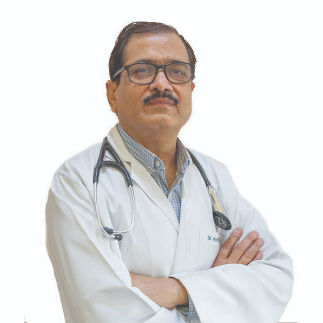
Dr. Rajeeve Kumar Rajput
Cardiologist
30 Years • MBBS, MD, DM
26 KM • New Delhi
Apollo Hospitals Indraprastha, New Delhi
Book Appointment for Cardiologist in Gurgaon
The human heart, that indispensable organ within our chest, deserves the utmost care and vigilance. Its regular monitoring ensures well-being. Contact best cardiologist in Gurgaon through the convenient Apollo 24|7 App to book an appointment. Experienced best heart doctor in Gurgaon examines each patient thoroughly. Their insightful analyses, whether virtual or physical, thoroughly illuminate each unique heart's contours. Collaborating closely with the city's top cardiovascular physicians moves one steadily along strengthening heart health's highway. Entrust your cardiac health in the capable hands of the best heart doctor in Gurgaon and let us collaboratively advance along the road to strengthen cardiovascular condition.
Why Visit a Cardiologist?
Living in Gurgaon and wondering why you should visit a cardiologist? The best heart specialist in Gurgaon presents several advantages for your health. Here are some reasons why choosing a cardiology doctor in Gurgaon can be beneficial:
Comprehensive treatment options: everything from lifestyle modifications to medications and surgeries, your cardiologist will provide a range of treatment choices based on your specific condition.
Local understanding: A cardiologist practising in Gurgaon knows the local lifestyle, diet habits, and common health issues better.
Ongoing monitoring and prevention: Regular consultations with a cardiologist can help monitor and manage chronic cardiovascular conditions. Cardiologists also play a key role in preventing heart disease by assessing risk factors and advising on lifestyle changes.
Expertise in cardiovascular diseases: A cardiologist in Gurgaon has extensive training and experience managing a wide range of heart and vascular conditions.
Advanced diagnostic testing: Your heart doctor in Gurgaon can interpret specialised tests to diagnose cardiovascular problems.
Access to advanced facilities: The best heart doctor in Gurgaon has access to advanced medical facilities for complex procedures and surgeries.
Trust your heart health to the top cardiologist in Gurgaon – for the expertise, personalised care, and comprehensive treatment that your heart deserves.
What do Cardiologists do?
When looking for a heart specialist in Gurgaon, you are choosing a doctor at the forefront of diagnosing and treating cardiovascular conditions. The best cardiologist in Gurgaon is equipped to handle various cardiovascular issues. Here are some conditions that our top cardiologist in Gurgaon can treat:
Atherosclerosis
Congenital heart defects
Myocardial infarction (heart attack)
Angina (chest pain)
High blood pressure (hypertension)
Coronary artery disease
Heart valve problems
Peripheral arterial disease
Heart failure
Heart rhythm disorders (arrhythmias)
Stroke
What Diseases or Conditions Do Cardiologists Treat?
Cardiologists in Gurgaon are medical professionals skilled in diagnosing and managing diseases related to the cardiovascular system. They are proficient in dealing with:
Atrial fibrillation: This specific type of arrhythmia increases the risk of stroke and heart failure. Early detection and treatment by a cardiologist can prevent these complications.
Hypertension: This condition requires regular monitoring by heart doctors in Gurgaon to prevent serious complications like strokes.
Cardiomyopathy: A disease affecting the size, shape, and ability of the heart muscle to pump blood. Regular check-ups with a cardiologist are essential for managing this condition.
Heart attack: In the event of a heart attack, immediate medical attention by a cardiology doctor can save lives.
Valvular heart disease: Conditions affecting the heart valves can lead to chest pain and breathlessness.
Arrhythmias: These are abnormal heart rhythms that may cause dizziness or fainting spells. Cardiology specialists use various diagnostic tools to detect these conditions.
Coronary artery disease (CAD): A cardiovascular disease that occurs when the arteries that supply blood to the heart become narrow.
Heart failure: In this condition, the heart doesn't pump blood effectively, leading to symptoms like breathlessness and fatigue.
Congenital heart disease: The top heart doctors in Gurgaon regularly screen newborns for congenital heart defects that could affect normal blood flow.
Peripheral artery disease (PAD): Narrowed arteries can reduce blood flow to the limbs, leading to leg pain. Top cardiologists offer treatment options to control its progression.
What are the Procedures Performed by Cardiologists?
The best heart specialists in Gurgaon not only diagnose and treat heart diseases but also perform various cardiac procedures, including:
Stress testing: Cardiologists use this method to evaluate how the heart performs under physical stress and diagnose CAD.
Coronary artery bypass grafting (CABG): A surgical procedure performed by cardiologists to create a new route for blood flow, bypassing blocked arteries.
Echocardiogram: This non-invasive ultrasound test helps visualise the heart's structures and functions.
Electrocardiogram (ECG): This test records the electrical activities of the heart to detect arrhythmias and other conditions.
Coronary angioplasty and stenting: These procedures open blocked coronary arteries using a balloon and place a stent to keep the artery open.
Cardiac catheterisation: A diagnostic procedure involving threading a catheter through blood vessels to the heart to assess its condition.
Pacemaker insertion: The best cardiologist in Gurgaon can perform this procedure by implanting a device that helps regulate abnormal heart rhythms.
Valvuloplasty: A procedure to repair a narrowed heart valve, improving blood flow.
Ablation therapy: A minimally invasive procedure that cardiologists use to destroy small areas of heart tissue causing arrhythmias.
Transcatheter aortic valve replacement (TAVR): This is a method to replace a narrowed aortic valve without open-heart surgery.
How Can I Find the Best Cardiologist in Gurgaon Near Me?
Searching the best cardiologist in Gurgaon shouldn't be too difficult with help from Apollo. Downloading the Apollo 24|7 app unveils important clues. Browsing profiles discloses each specialist's focused domain and what past patients have publicly expressed.
An initial examination is prudent after choosing a cardiologist. Various options enable convenient discussions, including virtual consultations or customary office meetings. With continuous help from Apollo 24|7, your cardiac well-being takes priority. Therefore, delay no more. Contact the best heart doctor in Gurgaon promptly to immediately evaluate any concerns.
Cardiologists in Top Localities
- •Best Cardiologists in Gurgaon Sector 17, Gurgaon
- •Best Cardiologists in Shivaji Nagar, Gurgaon
- •Best Cardiologists in New Colony, Gurgaon
- •Best Cardiologists in Gurgaon Kty., Gurgaon
- •Best Cardiologists in Mini Sectt., Gurgaon
- •Best Cardiologists in Basai Road, Gurgaon
- •Best Cardiologists in Arjun Nagar, Gurgaon
- •Best Cardiologists in Urban Estate, Gurgaon
- •Best Cardiologists in Gurgaon H.O, Gurgaon
- •Best Cardiologists in Khandsa Road, Gurgaon
- •Best Cardiologists in Gurgaon South City I, Gurgaon
- •Best Cardiologists in DLF QE, Gurgaon
- •Best Cardiologists in Gurgaon Sector 45, Gurgaon
- •Best Cardiologists in Jharsa, Gurgaon
- •Best Cardiologists in Smaspur, Gurgaon
- •Best Cardiologists in Gwal Pahari, Gurgaon
- •Best Cardiologists in Wazirabad, Gurgaon
- •Best Cardiologists in Khandsa, Gurgaon
- •Best Cardiologists in Narsinghpur, Gurgaon
- •Best Cardiologists in Kherki Daula, Gurgaon
Near by Cities
Cardiologists in Other Top Cities
- •Cardiologists in Bengaluru
- •Cardiologists in Chennai
- •Cardiologists in Hyderabad
- •Cardiologists in Kolkata
- •Cardiologists in New Delhi
- •Cardiologists in Mumbai
- •Cardiologists in Ahmedabad
- •Cardiologists in Pune
- •Cardiologists in Gurugram
- •Cardiologists in Guwahati
- •Cardiologists in Mysuru
- •Cardiologists in Chinagadila
- •Cardiologists in Hyderguda
- •Cardiologists in Indore
- •Cardiologists in Lucknow
- •Cardiologists in Madurai
- •Cardiologists in Bhubaneswar
- •Cardiologists in Noida
- •Cardiologists in Tiruchirappalli
- •Cardiologists in Visakhapatnam
Doctors in Top cities
- •Top Doctors in Hyderabad
- •Top Doctors in Bengaluru
- •Top Doctors in Chennai
- •Top Doctors in Kolkata
- •Top Doctors in East Godavari
- •Top Doctors in Mumbai
- •Top Doctors in New Delhi
- •Top Doctors in Bangalore
- •Top Doctors in Pune
- •Top Doctors in Delhi
- •Top Doctors in Gurugram
- •Top Doctors in Noida
- •Top Doctors in Ahmedabad
- •Top Doctors in Lucknow
- •Top Doctors in Ghaziabad
- •Top Doctors in Visakhapatnam
- •Top Doctors in Guwahati
- •Top Doctors in Madurai
- •Top Doctors in Bhubaneswar
- •Top Doctors in Vijayawada
Top Specialties
- •General Physician/ Internal Medicine Specialists Consultation Online
- •Obstetrician and Gynaecologists Consultation Online
- •General Practitioner Consultation Online
- •Orthopaedicians Consultation Online
- •Paediatricians Consultation Online
- •Dermatologists Consultation Online
- •Dentists Consultation Online
- •Ent Specialists Consultation Online
- •Cardiologists Consultation Online
- •Family Physicians Consultation Online
- •Psychiatrists Consultation Online
- •General Surgeons Consultation Online
- •Pulmonology Respiratory Medicine Specialists Consultation Online
- •Urologists Consultation Online
- •Gastroenterology/gi Medicine Specialists Consultation Online
- •Neurologists Consultation Online
- •Physiotherapist And Rehabilitation Specialists Consultation Online
- •Neurosurgeons Consultation Online
- •General and Laparoscopic Surgeons Consultation Online
- •Nephrologists Consultation Online
Related Treatments in Gurgaon
- •Treatment for Acute Pericarditis in Gurgaon
- •Treatment for Ambulatory Blood Pressure Monitoring in Gurgaon
- •Treatment for Andersen Tawil Syndrome in Gurgaon
- •Treatment for Acute Aortic Dissection in Gurgaon
- •Treatment for Adenomyosis in Gurgaon
- •Treatment for Amyotrophic lateral sclerosis in Gurgaon
- •Treatment for Acute Diarrhea Treatment in Gurgaon
- •Treatment for Ankle Pain in Gurgaon
- •Treatment for Abnormal Heartbeat in Gurgaon
- •Treatment for Acute Myocardial Infarction in Gurgaon
- •Treatment for Abdominal aortic aneurysm in Gurgaon
- •Treatment for Acute coronary syndrome in Gurgaon
- •Treatment for Angina in Gurgaon
- •Treatment for Angiopathy in Gurgaon
- •Treatment for Stress Management Specialist in Gurgaon
- •Treatment for Adopted Child Syndrome Treatment in Gurgaon
- •Treatment for Aicardi Goutieres Syndrome Disorder in Gurgaon
- •Treatment for Aicardi Syndrome in Gurgaon
- •Treatment for Aneurysm in Gurgaon
- •Treatment for Aneurysms in Gurgaon
FAQs
What does a heart specialist doctor do?
A heart specialist, also known as a cardiologist, diagnoses and treats conditions of the heart and blood vessels. He or she is adept at interpreting tests, managing treatments like medications or procedures, and advising on lifestyle modifications for heart health.
What are the common symptoms of heart disorders?
Symptoms of heart disorders can include chest discomfort, shortness of breath, fatigue, irregular heartbeat, swollen legs or abdomen, and fainting spells. It's crucial to seek medical attention if such symptoms persist.
What is the field of cardiology?
Cardiology is a medical speciality dealing with issues related to the heart and circulatory system. It involves diagnosing and treating heart diseases and abnormalities, such as congenital heart defects or coronary artery disease.
What are the common heart disorders a cardiologists treats?
A heart specialist treats various conditions, including coronary artery disease, arrhythmias (irregular heartbeats), heart failure, valvular heart diseases, and congenital heart defects.
When should I consult a heart specialist?
You should consult a heart specialist if you experience symptoms like chest pain, shortness of breath, unexplained fatigue, or irregular heartbeat. Regular check-ups are also advised if you have risk factors like smoking, diabetes, high blood pressure, or a family history of heart disease.
Are there different types of cardiologists?
Yes, there are various types of cardiologists. For instance, an interventional cardiologist performs procedures like stent placements, while an electrophysiologist deals with heartbeat irregularities (arrhythmias). A paediatric cardiologist specialises in children's heart problems.
Can a heart specialist perform cardiac surgery?
Generally, a cardiologist doesn't perform surgery. Cardiothoracic surgeons, a different medical speciality, perform major surgeries like bypass grafting or valve replacements. However, some cardiologists, like interventional cardiologists, can perform minimally invasive procedures.
Which doctor is best for the heart?
It varies based on your condition. A general cardiologist is best for routine heart issues. You might need an electrophysiologist or a structural heart disease specialist for complex cases like irregular heartbeats or structural heart defects.
What to expect at your first visit to a heart doctor specialist?
Your first visit to a heart specialist may involve discussing your symptoms, medical history, and lifestyle habits. The doctor might also conduct physical examinations and tests like ECG, blood tests, or imaging to diagnose your condition.
How do heart specialists check for blocked arteries?
Heart specialists use several methods to check for blocked arteries. These include stress tests, echocardiograms, coronary angiography, CT scans, and MRIs. These tests help identify blockages and plan the appropriate treatment strategy.